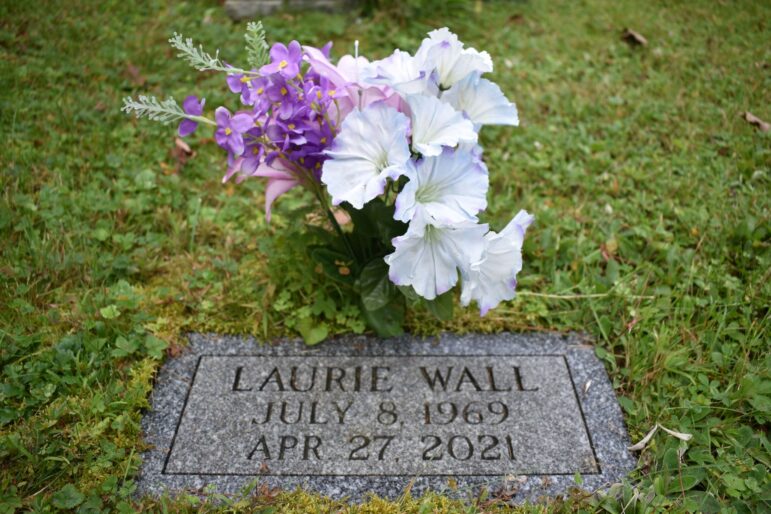The
ratings and quality of care at nursing homes in the United States
dramatically vary. While many facilities receive five-star ratings from
Medicare, far too many others fall well below the standard of care its
residents are entitled to.
Risks to the health and safety of
residents are higher at facilities with low ratings and citations and
violations from inspections. Insufficient staff training for care and
safety, understaffed, and inadequate monitoring of residents and
patients often are the cause of nursing home injuries and deaths.
In
several states, nearly half of all nursing homes have a below-average
Medicare rating, many of which are owned by Genesis HealthCare. As one
of the largest long-term care companies in the country, Genesis
HealthCare has a long history of nursing home abuse lawsuits, among
other legal troubles.
Genesis HealthCare has paid
multimillion-dollar settlements for cases of residents who were not
properly monitored, treated, or cared for, resulting in serious, and
sometimes fatal, infections and accidents.
Nursing home neglect and elder abuse
victims at the company’s facilities have recounted horrifying
experiences. One Genesis HealthCare facility patient who didn’t receive
daily care for open sores developed maggots in one of her wounds.
Unfortunately, this is just one case of a patient not receiving adequate
care. There are countless others.
Genesis HealthCare has over 250
nursing homes and rehabilitation centers in the U.S., including in
Pennsylvania, New Mexico, North Carolina, California, New Jersey, and
Kentucky. They offer short- and long-term care, senior living services,
dialysis care, Alzheimer’s care, orthopedic rehabilitation, and
ventilator care.
Citations and Lawsuits Against Genesis HealthCare for Nursing Home Abuse
There’s been a steady influx of
wrongful death and nursing home abuse lawsuits against Genesis
HealthCare for over a decade. Inspections by the Department of Health
and Medicare ratings have shown their facilities frequently fail in
their responsibility to provide the standard of care they’re supposed
to.
These failures have caused severe
injuries, illnesses, and emotional distress. Sadly, they’ve also led to
several unnecessary deaths.
Some of the common allegations in
state, federal, and personal injury claims against nursing homes and
rehabilitation centers owned by Genesis HealthCare include:
- Improper care of ulcers, wounds, and bed sores
- Failure to diagnose and treat illnesses and infections
- Emotional, physical, and sexual abuse
- Inadequate staff training
- Unsafe and unsanitary conditions
- Medication errors
- Fractures and breaks from falls
The history of nursing home lawsuits
and other legal troubles that Genesis HealthCare has faced is extensive.
The following are just a few cases of neglect and abuse that residents
have unfairly endured.
2022: Quinnipiac Valley Center Nursing Home Deaths, Safety Violations
Genesis HealthCare’s Quinnipiac Valley Center nursing home was shut down due to safety concerns
and the deaths of two residents. Following an investigation, the
Department of Public Health (DPH) announced a mandated closure in March
2022, which required all 94 residents to be moved to other homes.
The investigation revealed that the
Genesis HealthCare nursing home residents weren’t getting their
medications on time or given the correct dosage or type, staff weren’t
trained properly, and that neglect was occurring. One resident died of a
heart attack after staff failed to give him his medication. They also
discovered that infections at Quinnipiac Valley Center weren’t
controlled how they should have been to ensure the health and safety of
residents and staff.
There were seven findings of immediate jeopardy
once the investigation was completed. According to the Department of
Public Health, immediate jeopardy findings are issued when a nursing
home’s health violation is so serious there’s a risk of imminent harm to
life.
2022: Heritage Hall West and Heritage Hall North Neglect, Inadequate Care
In Massachusetts, two Genesis HealthCare facilities were fined for patient neglect
and inadequate care of their residents. Settlement agreements were
reached with Heritage Hall West and Heritage Hall North in 2022. Details
of the claims include the reckless neglect of a patient recovering from
surgery, resulting in serious nursing home injuries that should have
never happened. North also failed to do any training for medical
emergencies for over three years.
In addition to the nursing home neglect lawsuit settlements, nearly $90,000 was recovered by the Medicaid Fraud Division.
2016-2020: Canyon Transitional Rehabilitation Center Violations, Lawsuits
Owned by Genesis HealthCare, Canyon
Transitional Rehabilitation Center has been sued at least 13 times for
negligence, fraud, and wrongful death. The nursing home’s history of violations and lawsuits
come as no surprise, given inspections at the facility have resulted in
one-star ratings by the Centers for Medicaid and Medicare Services for
years.
The Genesis HealthCare rehabilitation
center was found to have severe deficiencies that put its residents’
health at risk. Staff shortages, incompetence, and a lack of infection
control are some of the main citations the facility has received. And
yet, amidst the known dangers of neglect, safety violations, and nursing
home injury and wrongful death lawsuits, the center was set up to
intake residents from other facilities who tested positive for COVID-19.
2017: Eagle Crest Nursing Home Sexual Abuse
In California, the troubled Eagle Crest nursing home closed
following inspections by the California DPH and the discovery of a
resident sexually abused by another resident on several occasions. The
poor quality of care by the Genesis HealthCare nursing home led to the
facility being under scrutiny for years; it had a long history of state
citations and fines and poor ratings for neglect and safety concerns.
Eagle Crest had even been on the federal government’s consumer-beware
list of troubled facilities for 37 months by the time the closure was
announced.
While they voluntarily closed, the
DPH had recommended Medicare drop the nursing home, a move that would
have significantly impacted the facility owned by Genesis HealthCare.
They stated Eagle Crest put all female residents at risk of sexual abuse
because they failed to protect them by adequately monitoring the
abuser. Inspectors also noted inadequate care and failure to report
suspected abuse as some of the other issues.
2017: Federal Lawsuits Against Genesis HealthCare
Around the same time as the Eagle
Crest closure, six different federal rehabilitation and nursing home
lawsuits were settled with Genesis HealthCare. The lawsuits accused the
company of fraudulent billing for false claims of unnecessary services
or grossly substandard rehab care. Several whistleblowers were involved
in the cases, and the settlements amounted to $54 million.
2016: Milford Center Negligent Care and Treatment
In 2016, Genesis HealthCare was sued
by the surviving family of a former patient at one of the company’s
long-term care facilities in Delaware. The lawsuit claimed the doctors
and nurses at the Milford Center were negligent in their care and
treatment of the patient, who had dementia, and that they ultimately
caused her death. The nursing home neglect lawsuit against Genesis
HealthCare stated the victim was prescribed an antipsychotic drug that poses risks to dementia patients and that they failed to get legal consent from the family to give the medication.
The medication’s packaging warned
that elderly patients with dementia who are treated with antipsychotic
drugs are at an increased risk of death. The plaintiff’s lawyer stated
they felt the drug was given to act as a form of restraint instead of
having an actual medical reason to administer it.
These cases of nursing home abuse and
neglect at Genesis HealthCare facilities are just a small sample of the
legal troubles the company has faced due to their failures and
subsequent harm residents have endured. Federal and state governments
have repeatedly, including recently, spoken out about the despicable
conditions and treatment of residents at their facilities across the
country. It’s no surprise that nursing home injury and wrongful death
lawsuits continue to plague Genesis HealthCare.
Why File a Nursing Home Abuse Lawsuit
The elderly and sick are some of the
country’s most vulnerable people, yet nursing home abuse and neglect
occurs regularly throughout the country. Significant trust is placed in
the medical professionals working at long-term care facilities and the
companies that own them. While staff should be appropriately trained in
patient care and safety protocols, for-profit nursing homes constantly
battle neglect and abuse lawsuits.
When a care facility fails in its
duty to provide adequate and compassionate care, holding them
accountable for neglect and abuse is crucial – especially when it leads
to personal injury or wrongful death.
Unfortunately, Genesis HealthCare is
not the only company regularly facing nursing home lawsuits and other
legal troubles. But when organizations of this size frequently fall well
below the standard of care, taking legal action is an essential step
towards change.
If you or a loved one are injured or
developed an illness or infection while staying at a Genesis HealthCare
facility or other nursing home or rehab center, speak with a nursing
home abuse lawyer as soon as possible. While it’s sometimes obvious the
facility or staff’s actions or inaction led to the resident’s harm,
that’s not always the case.
An experienced nursing home injury
lawyer can help determine whether what happened could have been
prevented if the victim received proper care and treatment. They’ll
gather the evidence needed to demonstrate nursing home neglect or abuse
occurred, protect your rights, and get the compensation and justice you
or your loved one deserves.
There are also deadlines to file
nursing home lawsuits due to statute of limitations. An attorney can
ensure your claim is filed correctly and on time. And if a family member
died, a wrongful death lawsuit can hold the care facility accountable
for what happened and compensate you for the tragic loss.


















